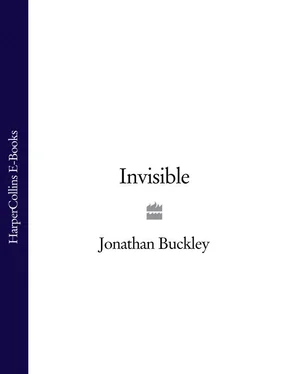They have not spoken to each other for months, but she speaks as if continuing an argument that had been interrupted earlier that day. ‘Hello, Kate,’ he replies. ‘How are you?’
‘What’s this all about, Malcolm?’
‘What’s what all about?’
‘You know perfectly well. This letter to Stephanie,’ she says crisply. ‘What do you think you’re playing at? Going behind my back.’
‘I was not going behind your back.’
‘You didn’t tell me. I’d say that’s going behind my back.’
‘Kate, I was not going behind your back.’
‘So why didn’t you tell me?’
‘Because she asked me not to.’
‘She asked you.’
‘Yes, she asked me not to tell you yet, so I didn’t.’
‘So why do you think she asked you to do that?’
‘Because she didn’t want you to know yet, clearly.’
‘And you think that’s OK? She says “Let’s not tell Mum, eh?” and you just go along with it.’
‘No, I don’t just go along with it. Why don’t you ask her to read you what I wrote –’
‘I’ve read what you wrote.’
‘I see.’
‘Meaning what?’
‘That I’m surprised you open her mail.’
‘I found it in her room.’
‘Addressed to Stephanie.’
‘That’s not the point. The point is –’
‘The point is that you read it.’
‘Yes, I read it. I’m not going to apologise for finding out what you wrote to our daughter.’
‘And you think that’s permissible? Reading something addressed to her, a private correspondence.’
‘The point is, Malcolm, that I have a right to know about this. I have a right to know what’s going on.’
‘Well, that was my point exactly. As you know, having read my letter.’
Her breathing becomes quieter, as if she is holding the phone away from her mouth, and then she resumes, at the same pitch as her first words, ‘So she wrote to you? Out of the blue, just like that, she wrote to you?’
‘Yes.’
‘You didn’t start it?’
‘No, Kate, I didn’t start it. I’ve thought about it, I’ve wanted to do it, I don’t think any court would have convicted me if I had done it, but no, I didn’t.’
‘One day, after all these years, she gets it into her head to write to you.’
‘Apparently.’
‘This is a girl who hasn’t mentioned your name since God knows when. So why does she suddenly get this notion to send you a letter?’
‘Ask her, Kate. I don’t know. I was as surprised as you. You’ll have to talk to her.’
‘I will, don’t worry,’ she says.
In the pause he hears a tapping, perhaps of a pen on a table-top. ‘Kate?’ he asks. ‘Why are you so agitated about this?’
‘I’m not agitated,’ she retorts. ‘I’m livid. Absolutely bloody livid.’
‘But why?’
‘That’s a really dim question.’
‘Then tell me. I know this is confusing. It’s confusing for both of us. But why are you so angry that Stephanie wants to see me?’
‘What I’m angry about is you two scheming behind my back.’
‘We’re not scheming. I’ve explained.’
‘Malcolm, even if you’re not scheming, she is.’
‘That’s not how I’d put it.’
‘It’s how I’d put it.’
‘I’m sure she has good reasons for going about it this way.’
‘Do you now?’
‘Yes, I do.’
‘And what do you imagine these good reasons would be?’
‘I don’t know, Kate, do I? You tell me.’
‘Good reasons,’ she repeats, and he hears her whisper: ‘Jesus Christ.’
This curse, uttered wearily, as though to herself, sets off an echo in his mind, an echo of conversations he does not want to recall. ‘I can’t very easily –’ he begins.
‘I don’t need this, Malcolm,’ she goes on. ‘I really don’t need this.’
‘Don’t need what? Talking to me?’
‘Oh Christ,’ she sighs again. ‘I tell you what: I don’t even think she does want to see you. And that’s the truth. I think she’s doing this to get at me.’
‘But a minute ago you were complaining that she didn’t want you to know.’
‘I’d have known sooner or later.’
‘Kate, what is going on there? I should know. Has something happened?’
‘Nothing’s happened. Life’s lumbering on. She’s a nightmare to live with, and I’m fed up with it.’
‘I think we should discuss this.’
‘No, we don’t need to discuss it. It’s not your problem. It’s mine. Robert’s and mine.’
‘She’s my daughter.’
‘Not any more. You don’t know her now.’
‘Well, that’s about to change.’
‘Might be.’
‘No, Kate. Is. Is about to change.’
‘I don’t want to talk about this any more. I have to think. I’ll call you back.’
‘When?’
‘I’ll call you back. Soon.’
‘Call me at the weekend.’
‘Yes.’
‘Before Monday, OK?’
‘Yes. OK,’ she exhales.
‘Talk to her, Kate.’
‘Yes, Malcolm. I don’t need your advice.’
‘Talk to her and let me know what’s happening.’
‘Yes,’ she says, and puts the phone down.
In the beginning perhaps they had been drawn together by her discontent. He can still see her, in the dining room of the Zetland, standing amid a group of aunts and uncles, her eyes desperate and her smile frozen with boredom. A man with a bright red jacket and a paisley tie put his arm round her waist, and her neck stiffened as he kissed her on the cheek. She would have been fourteen then, or fifteen. He had often seen her walking with her friends, a demure little entourage that moved undisturbed through the mêlée of children around the gates, more like a gang of precocious office workers than schoolgirls. Waiting for the bus, she always stood extraordinarily straight, like a dancer, and she was standing that way at the Zetland, blinking at the cigar smoke that was being blown across her face. She turned and tapped his arm to ask if she could get a glass of water, then followed him to the kitchen. When she took the glass from him and sat down in the kitchen, her hair hid her face from him in a way that made her look more sophisticated than any of the adults. Lifting her head, she put a hand flat against her brow and sighed: ‘Jesus Christ, get me out of here.’ She’d drunk a glass of gin. She was three-quarters drunk, and she really didn’t like it, she said, looking at him, with her head resting on her arms. He told her she should eat something, and made an omelette for her, which she ate in about half a minute. His father called him back out to the party, and when he returned to the kitchen she had washed the plate and pan, and made two cups of coffee. And somehow, before the party was over, they came to be climbing up the spiral staircase to the roof of the turret. The weathervane creaked above their heads as they looked out at the sea, standing side by side, so close that her dress kept brushing the back of his legs. Kate surveyed the whole town in one continuous sweep. ‘What a dump,’ she said. ‘Just look at it. Death.’ She removed the pin that held the paper orchid to her dress and flung the flower upward. They watched it fly over the sea-coloured roofs and fall into the street. The skin on her arms had tightened with the cold. He took off his jacket and offered it to her, but she would not take it.
Years later she finally escaped, with him, and they had lived abroad and been happy. For a long time they had been happy, most of the time. He knows this to be true, but at this moment, in the grey wake of their conversation, no instance of their happiness shows itself. What impresses itself upon him is that often, even during their first months in Amsterdam, he would see on Kate’s face a look like the expression he had seen that night in the Zetland, and it seems to him now that their marriage was like a path laid upon a marsh, and that the frigid ooze of boredom would well up through it, more and more frequently as the years passed. And boredom became bitterness, became something like contempt. He remembers one afternoon, on a bridge by a bookshop, when he explained why it would be best to stay a little longer in Amsterdam, as Mr Rijsbergen’s assistant. Just three or four months more, then they could go back to England. She listened, watching a police boat moving slowly down the canal. At last she spoke. ‘Whatever you say,’ she said, nothing more, tightening the straps on Stephanie’s pushchair. She walked off without saying another word, and that night, when he came home, he found in the kitchen bin a sheet of the hotel’s writing paper, on which she had written, in lipstick: ‘bored bored bored bored’. He remembers crushing the piece of paper into an empty tin and sitting in Stephanie’s room to watch his daughter while she slept. He fell asleep on the floor beside the cot. When he woke up he went into their bedroom. Kate lay curled on her side, with one hand under her cheek. He was no longer annoyed by the childish message she had left for him to find. Looking at her as she lay in their bed, turned away from him in sleep, in the shadows that the curtains cast like raindrops across the room, he felt something akin to the misery of bereavement, a misery that now, summoned by Kate’s voice, is returning to him, like an amnesiac’s interlude of clarity.
Читать дальше











